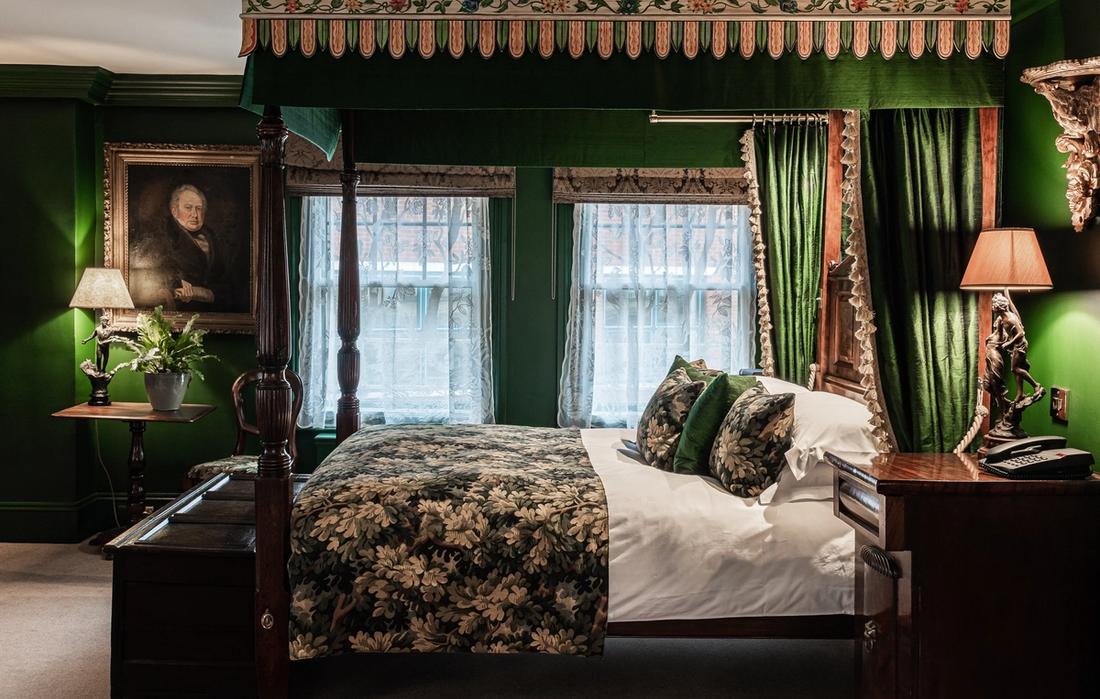The Good Hotel Guide is the leading independent guide to hotels in Great Britain & Ireland, and also covers parts of Continental Europe. The Guide was first published in 1978. It is written for the reader seeking impartial advice on finding a good place to stay. Hotels cannot buy their way into the Guide. The editors and inspectors do not accept free hospitality on their anonymous visits to hotels. All hotels in the Guide receive a free basic listing. A fee is charged for a full web entry.
The Good Hotel Guide
About Us
Independent
Recommended
Trusted
Independent
Recommended
Trusted

Whatever happened to silence?
All blog posts
3 minutes
6 Nov 2019
Whatever happened to silence?
All blog posts
3 minutes
6 Nov 2019
By Adam Raphael

This week an email landed on my desk complaining about ‘screechy’ pop music in a hotel’s dining room. According to the Guide’s reader, when he complained that his ears were being assaulted, the reaction was ‘one of surprise that he didn’t like it.’ The curse of canned music strikes again. Sadly, many hoteliers believe that muzak is preferable to silence. Why are they missing the plot?
A seaside hotel, excellent in every other way -it has won several Guide awards (don’t ask!)– insists on playing Radio 4 at breakfast and canned music elsewhere day and night. When I squeaked to its owner that readers of the Guide came to the seaside to hear the sound of waves rather than arguments about Brexit, his reply was: ‘most of our guests appreciate Radio 4 in the morning and then suitable music during the rest of the day.’ Who am I to quarrel with this experienced hotelier? He undoubtedly knows his market better than I do. But I am unconvinced. I accept that most of his guests may positively like, or more probably be oblivious to aural rubbish. But there is a vocal minority who will hate it. Another reader wrote to us: ‘Most annoying was the background music which seemed to be piped Radio 2. I asked the manager if he could turn it off but he substituted a looped recording of Simon & Garfunkel, calculating, no doubt, that it was more of our era.’
The problem about music, let alone muzak, is that there are few more divisive issues. That is why some railway stations play Bach through their loudspeakers in order to deter potential hooligans from loitering. If they played Hip-hop, they might get a better class of loiterers. The Guide has long been a supporter of Pipedown, an organisation which has campaigned for decades against piped music. Its membership includes such distinguished musicians, actors and writers as Alfred Brendel, Stephen Fry, Lesley Garrett, Julian Lloyd Webber, Joanna Lumley, Tony Parsons, Philip Pullman, Simon Rattle, Mark Rylance, Prunella Scales and Claire Tomalin.
Pipedown mounts a powerful case against muzak on its WEBSITE. Its killer point is that unwanted, endless piped music has an adverse effect on health by raising blood pressure and depressing the immune system. It emphasises that it causes stress to millions of people with hearing problems – 16% of the population. It also claims that more people hate piped background music than like it, which it says is evidenced by the results of numerous opinion polls. On average, roughly a third dislike muzak, while only 30% like it; the rest are indifferent. Finally, it notes that despite all the hype about differing types of music affecting people’s shopping habits, there is no evidence to show that such music increases sales by one penny. Aldi, Lidl, Waitrose/John Lewis, and Primark all thrive without wasting money on canned music.
You may wish to take some of the above with a pinch of salt, but I wish more hoteliers would actually ask their guests whether they enjoy hearing badly reproduced rubbish from morning, noon, to night. I certainly don’t. And I have at least one distinguished hotelier on my side. Ruth Watson, the former owner of the Crown and Castle at Orford, wrote to me about one guest who said he missed background music at dinner. ‘What I wanted to say to him was that background music is, by definition, banal, processed and generic – in fact, the antithesis of music. Furthermore, anyone who likes it must be cloth-eared, tasteless and melophobic. But as I am a polite hotelier (generally), I didn’t.’
I am glad also to have on my side the cooking guru, Nigella Lawson. She complained recently that noisy restaurants left her ‘utterly drained,’ and that noise ‘drowns out the taste of food.’ I wholeheartedly agree. I have given up going to London restaurants where you have to shout to be heard. Admittedly, this is not a muzak problem, but it falls into the same life-destroying category. Silence is golden. Let’s have a bit more of it.


